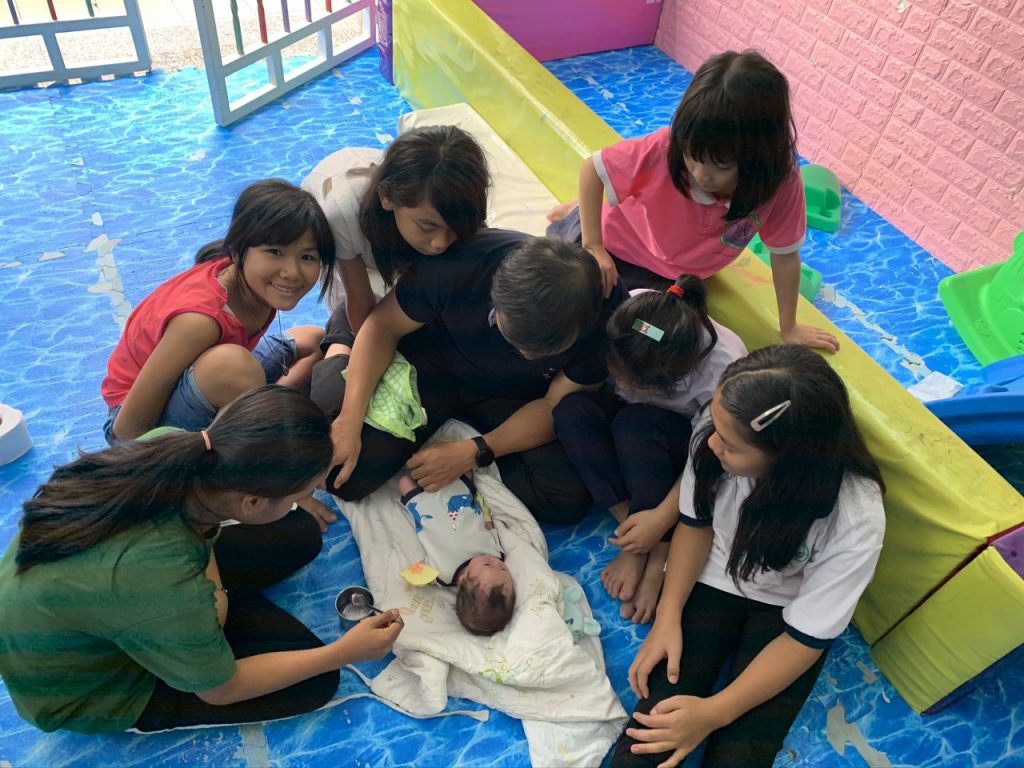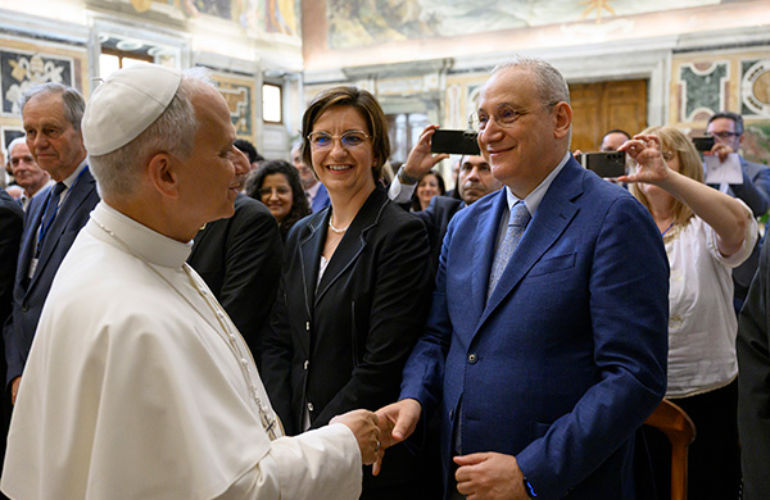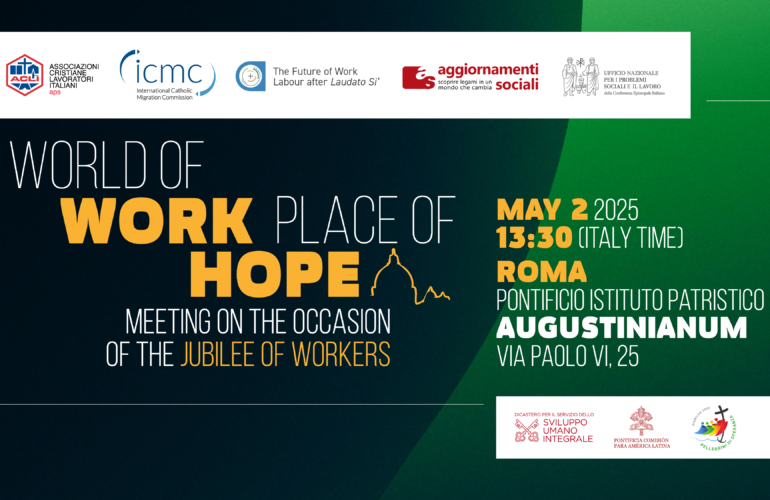Trafficking in human beings – that is, the recruitment and movement of people for exploitation and monetary gain – is a serious crime that robs women, men, and children of their dignity and safety. ICMC works together with its members, partners, and as part of the Global Protection Cluster Anti-Trafficking Task Force to combat this form of modern-day slavery. Prevention, awareness-building, proper training in victim identification as well as protection responses and supporting survivors in their recovery are vital means to counter human trafficking.
Many women, men, and children feel forced to migrate in order to live a life in safety and dignity, free from violence, conflict, and oppressive poverty. When neither they nor their families can meet basic needs, the rule of law has collapsed or been eroded, and social safety nets are disintegrating, they are left with few options other than to migrate. Stuck with exceedingly limited choices and desperate to find solutions, they can become easy prey to predatory human traffickers.
Twenty years ago, UN Member States came together in a shared, multilateral commitment to combat trafficking by ratifying the Protocol to Prevent, Suppress and Punish Trafficking In Persons, Especially Women And Children, or “Palermo Protocol.” Since then, States have made some progress but leaving much more to be done.
The Palermo Protocol defines human trafficking as “the recruitment, transportation, transfer, harboring or receipt of persons, by means of the threat or use of force or other forms of coercion, of abduction, of fraud, of deception, of the abuse of power or of a position of vulnerability or of the giving or receiving of payments or benefits to achieve the consent of a person having control over another person, for the purpose of exploitation. Exploitation…include[s], at a minimum, the exploitation of the prostitution of others or other forms of sexual exploitation, forced labor or services, slavery or practices similar to slavery, servitude or the removal of organs.”
Anyone can be trafficked both in ordinary times or in times of crisis. However, trafficking appears strongest and most frequently just after natural disasters, in contexts of conflict and crisis and during emergencies. That’s when the rule of law can be weakest, and authorities’ attention is diverted to handling the crisis. Trafficking can take many forms, such as commercial sexual exploitation, minors’ prostitution, debt bondage, involuntary servitude, recruitment into militias, and forced criminality. It can occur both inside a country or involve crossing borders, as in the case of migrants and refugees.

Along the migration route, traffickers capitalize on refugees and migrants’ vulnerable situation and desperation to enter a desired country of destination by fraudulently promising, for example, visas, easier migration pathways, and work opportunities – with seemingly no strings attached. Many migrant workers are attracted by the offers of jobs abroad, only to end up in forced labor conditions – especially in domestic work, sexual exploitation, agriculture, construction, manufacturing, and entertainment. By virtue of their age, lack of experience, absence of family accompaniment or social protections, girls and boys migrating alone are especially vulnerable to falling into the hands of traffickers who, in turn, make money by abusing and exploiting them – very often with violence.
People on the move who fall into the hands of traffickers come to find that they have become indebted to them – resulting in de facto slavery – and trapped into dehumanizing situations of extreme and violent exploitation to “pay back” their debts. Often threatened with death and retaliation even against their families if they try to escape, victims feel hopelessly trapped. Those who succeed in escaping face a whole other host of dangers and complications, including a real fear of being hunted down and recaptured by their traffickers or being deported back to their home country should they be discovered by the authorities. Indeed, these reasons often prevent migrants from denouncing their abusers. a
The clandestine nature of trafficking makes comprehensive and reliable data hard to come by. Other reasons include a lack of general awareness in communities of what trafficking is and the guises it can take. Moreover, humanitarian and social workers and community members have not always been adequately trained to identify a possible trafficking victim. And in that way, human trafficking can be “hidden” in plain sight. As a result, the best data available are estimates. However, those estimates give us a clear idea of what kind of trafficking is most prevalent.
Despite the lack of exact data, we know that the reasons children, women and men are trafficked, and the form their exploitation takes can vary according to age and region. Statics on detected victims of trafficking in 2018 show that 49% are female, 21% are male, and 30% are children. The 2018 UN Office on Drugs and Crime Global Report on Trafficking in Persons reveals that traffickers mainly target adult women and increasingly girls, who are most often than not trafficked for either sexual exploitation or forced labor (often domestic work). The report shows that sexual exploitation is the most common form of human trafficking in the Americas, Europe, East Asia, and the Pacific. Forced labor appears to be the dominant form of human trafficking in sub-Saharan Africa and the Middle East. In Central Asia and South Asia, trafficking for forced labor and sexual exploitation are equally prevalent.
Pastoral Orientations on Human Trafficking
Pope Francis has made the fight against human trafficking one of his priorities, calling it one of the “most dramatic manifestations” of the “commodification of the human person.” It not only “disfigures the humanity of the victim” but also “dehumanizes those who perform it,” the Holy Father said, and as such, “seriously damages humanity as a whole.”
Responding to Francis’ call, the Vatican’s Migrants and Refugees Section released the Pastoral Orientations on Human Trafficking. They provide an in-depth analysis of what human trafficking is and recommend awareness-building campaigns, training materials, and other practical steps that dioceses, Catholic organizations, laypeople, and priests can take in combatting human trafficking.
ICMC’s 20 years’ experience in providing counter-trafficking and sexual and gender-based violence responses to victims allowed it to make significant contributions to the Pastoral Orientations, which are the guidepost for ICMC’s on-going anti-trafficking advocacy work.
“ICMC and our national member organizations in many countries are committed to serve those who have been subjected to such abuse and to take strong action to eliminate these crimes. The Vatican resource will help us become more effective in our efforts,” said ICMC Secretary General Msgr. Robert J. Vitillo in welcoming the publication of the resource.
Targeting the Root Causes of Human Trafficking
For Msgr. Vitillo, curbing human trafficking can only be attained by tackling the roots of the problem in the countries of origin of the people being trafficked: endemic poverty, inadequate child protection, and lack of access to education, among others.
As part of its global Church networking strategy, ICMC instituted regional working groups of its national members, which address human trafficking and support their work with trafficking survivors.
The ICMC Asia-Oceania Working Group, chaired by Bishop Ruperto Cruz Santos of the Philippines – one of the countries where most human trafficking victims come from – links ICMC members in countries of departure, transit, and labor. The goal is to develop greater responsiveness to migration issues, including human trafficking.
“We need to listen to those directly affected and hear not only about their negative experiences but also about their strengths and capacity to revive themselves and live a new life,” says Msgr. Vitillo.
ICMC is also engaged, together with many Catholic-inspired organizations and the International Labor Organization (ILO), in a multi-faceted initiative, “The Future of Work: Labor after Laudato Sì”. Among other activities, the initiative examines ways to prevent exploitative, indecent, and corrupt labor practices that are often linked to human trafficking and exploitation of the most vulnerable people in society.
Bearing Testimony
In January 2020, ICMC participated in a hearing at the United States House of Representatives, to speak before the bipartisan Tom Lantos Human Rights Commission. ICMC’s contribution focused on the indispensable and far-reaching role of faith-based organizations in combating human trafficking and the added value of including them in anti-trafficking programming.
Recognizing that human trafficking violates the dignity of the human person, ICMC’s counter-trafficking work is driven by values. ICMC and its members have a unique and influential role to play, not only by protecting survivors but also by combating harmful practices within their communities.
In the United States, the U.S. Conference of Catholic Bishops’ Migration and Refugee Services (MRS), one of ICMC’s members, has a dedicated anti-trafficking program. The program provides a leading response for the Catholic Church in America to end all forms of modern slavery through education, outreach, and policy programs.
Anti-Trafficking Expertise at Its Leadership
In 2018, Dr. Anne T. Gallagher became President of ICMC. A clear signal of the organization’s commitment to anti-trafficking. Dr. Gallagher is a renowned expert on the topic, having worked with the United Nations, the Association of Southeast Asian Nations (ASEAN), and civil society groups to craft an international legal framework around trafficking.
Dr. Gallagher has been advocating for governments “to demonstrate a firm commitment to confronting the many forms of exploitation, from forced labor to the global organ trade.” For her, “trafficking is a serious crime and […] failure to prosecute and punish offenders makes a government complicit in the harm. It is hard to make the criminal justice process work well for victims. Still, our professional experience confirms that measures can be put in place to minimize trauma and support trafficked persons to cooperate in the prosecution of their exploiters.”



